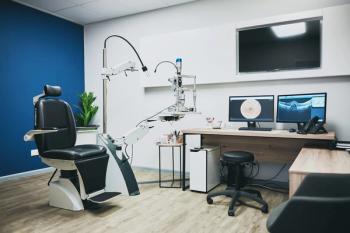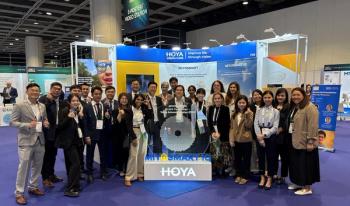
Empowering optometrists to take hold of myopia management
In honor of the Myopia Management Navigator’s 1-year anniversary, Dr Tucker shares clinical insights, practical tips, and business opportunities for optometrists looking to expand their scope and elevate patient care through evidence-based myopia management.
In celebration of the 1-year anniversary of the Myopia Management Navigator, Ashley Wallace Tucker, OD, FAAO, FSLS, Dipl ABO, shared valuable insights into her experience with myopia management and how optometrists can benefit from this dynamic tool developed by the World Council of Optometry in collaboration with CooperVision.
Tucker described myopia management as the most rewarding aspect of her full-scope practice, particularly the opportunity to impact children’s lives. She initially focused on orthokeratology, drawn to its immediate “wow factor,” but as more treatment options became available, she embraced a broader range of management strategies. This evolution in care aligns with the expanding clinical tools now available to optometrists.
A significant focus of the interview was the Myopia Management Navigator, which Tucker regards as an exceptional starting point for practitioners new to this area. The Navigator is structured around the WCO’s "3 Pillars of Myopia Management"—mitigation, measurement, and management. Each section of the Navigator is designed to guide optometrists through these steps in a clinically meaningful and easy-to-navigate way.
- Mitigation offers communication tools and educational resources that can be shared directly with patients and parents.
- Measurement includes guidance on tracking refractive error and axial length, which are crucial for effective monitoring.
- Management, the most complex pillar, provides a breakdown of treatment modalities, helping clinicians tailor options based on individual patient needs.
Tucker emphasized the Navigator’s regular updates and research-based foundation, making it a trustworthy resource for staying current in a rapidly evolving field.
Beyond clinical care, Tucker addressed the business opportunity myopia management presents. As optometrists already possess the expertise in refractive care, embracing this specialty not only improves patient outcomes but also supports sustainable practice growth. She encouraged her colleagues to recognize the value of their services and to confidently charge appropriately for their knowledge and time.
A key takeaway from Tucker’s experience is the importance of communication. She urges optometrists to initiate conversations with parents, even if there’s initial hesitation. Educating families about actionable options can be profoundly empowering and establishes the optometrist as a trusted source of progressive care.
In closing, Tucker reiterated the Navigator’s value, not just for clinical decision-making, but also as an ongoing educational tool. Whether you’re new to myopia management or a seasoned practitioner, the Navigator can enhance your approach and elevate the care you provide.
You can use the Myopia Management Navigator
Newsletter
Want more insights like this? Subscribe to Optometry Times and get clinical pearls and practice tips delivered straight to your inbox.





























